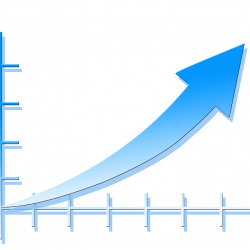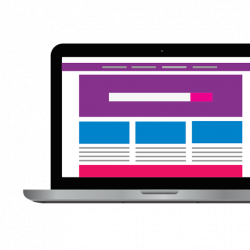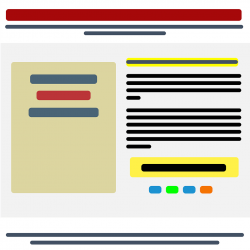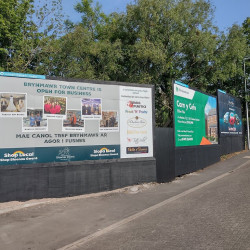Every business has its own marketing journey, even businesses in the same industry will have a unique journey compared to their competitors. It's important that your marketing journey is mapped out in advance so you know what's happening and when.
When planning your marketing journey, you've probably thought about either using Content Marketing so that your website is showing in the organic search results, or Pay Per Click (PPC) advertising so that your website is showing in the paid for results above the organic results. But have you ever thought about combining your content marketing with PPC?
You don't need to exclusively use one method or the other, you can use your efforts to create a "hybrid" digital marketing campaign.
Hybrid digital marketing campaigns are the best of both worlds. You use content marketing to create high-quality, relevant content that gives your search engine ranking a boost and builds your authority on search engines. While at the same time using PPC to capitalise on searches while you're optimising your website.
This sounds complex and technical
While it sounds complex and full of technical marketing jargon, it's actually quite simple in practice and you're likely already doing it without realising.
What is content marketing?
Content marketing is the content you're putting on your website with the aim of showcasing your business and products. Think of your blog posts and news updates.
The higher quality the content is on your website, the more likely you are to gain trust from your visitors and search engines, meaning your website it more likely to rank highly.
What is PPC?
Pay Per Click advertising is most commonly known as Google Ads (although other providers are out there). When using PPC, you pay the provider to show your website in the search results.
Think about all the sponsored links you've come across on the internet, all of those have paid someone to be there.
Now imagine what would happen if you combined content marketing with PPC, that's hybrid marketing. Like I said, if you're using PPC and keeping your website up-to-date, you're already doing it without realising.
What should I be focusing on first?
Let's start with baby steps. Everything boils down to you needing to have great content on your website. If people find your website organically and don't like what they see, they'll leave, and if someone clicks your sponsored link and doesn't like what they see they'll leave.
So start with your content marketing.
It can be tricky at first, because you need to define what makes content "great". If you're not sure where to being, look at your competitors, what are they writing about? How have they formatted the information on their website? Do they use images to break it up?
Your content needs to be unique to you and your business, so once you've found out what your competitors are doing, make it your own and go in a different direction. But most of all, do it better than your competitors, stand out from the crowd.
Remember - do not copy content directly from another website, Google will penalise you for it and you're not showing the uniqueness of your business.
What happens next?
Once your website is looking good and your content is up to scratch, you can start looking at your PPC campaigns.
After you've set up your account to start advertising, it's time to get down to the nitty gritty of it - setting budgets and writing headlines.
Writing headlines can be time-consuming and confusing - after all, there's only so many ways you can write the same sentence while making it unique.
If you start getting stuck, take the same approach as above, do some searching and find out what your competitors are doing. What headlines are they using? How are they phrasing their offers? Are they including images in their Ads?
Once you have a rough idea of what you should be including, you're good to go.
Remember - If you're paying for advertising, you want a way to make your money back. You need to have people carry out an action on your website, whether that's filling out a detail capturing form, or selling them a product / service. Keep your end goal in mind when building your campaigns. Even a simple phrase like "buy now" can work wonders.
Should I promote my generic content using PPC?
Not every advertiser has the budget to advertise every page they have, including their blog posts. But it can be a good way of getting your content in front of the right people, at the right time in their buying journey. If they're not ready to buy yet, but are looking for information about the product, you can target them and get them used to seeing your brand. But how can you do this effectively?
The easiest way is to leverage social media. For example, after writing your blog posts, make sure you put links to them on your social media. If you find a particular post is gaining traction, it might be worth boosting this post so it reaches an even wider audience.
You can run these campaigns sequentially.
Firstly, run a campaign targeted towards people who have liked your page. This ensures that people who are already in your niche are aware of the content you're putting out.
Secondly, run a campaign targeted to your followers and their friends. This is good because people who like your page probably have friends with the same interests. This isn't a guarantee though, so you may see a reduction in the level of engagement.
Thirdly, you can run a campaign that runs on exact targeting information to get your post in front of people who are interested. To do this, you need to find your Audience Insights data and then use this to see what your audience is interested in before targeting others with the same interests.
Summing Up
Before reading this post, you might not have considered how you could get your message out using both content marketing and PPC. However, by using PPC to enhance your content marketing, you may find that you're able to reach a larger audience than you will be using just one or the other.





